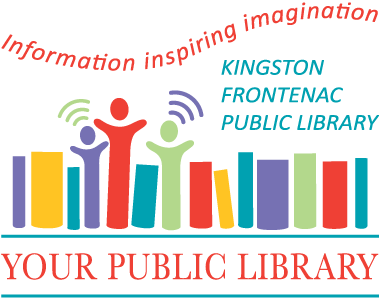Reviewed by Parmin
The Secret Commonwealth is part of the Book of Dust trilogy. The first book is called La Belle Sauvage. If you have not yet read La Belle Sauvage, I would highly recommend it. If that is the case and you plan on reading it, don’t keep reading this review! Spoiler warning for La Belle Sauvage!
The Book of Dust series is an extension of Philip Pullman’s His Dark Materials trilogy, so if you have read that series, you will likely enjoy this one too! This book continues Lyra Belaqua/Silvertongue and Malcolm Polstead’s adventures. In the first book, we follow the adventures of 11-year-old Malcolm Polstead and 15-year-old Alice Lonsdale as young children who save baby Lyra from a flood as well as an evil man named Gerard Bonneville who intends on taking Lyra away from them. The Secret Commonwealth is set 20 years later, and we now see Lyra as a grown adult attending St. Sophia’s College. Malcolm is now a professor at Oxford, and Alice is the housekeeper there. In this universe, daemons are animals that are the physical representation of a human being’s physical and mental state. Separating them from their owners is excruciating and sometimes fatal. However, both Lyra and Malcolm can separate from their daemons, because of some past events in La Belle Sauvage and His Dark Materials. Overall, life seems to be going pretty well, other than the constant bickering between Pantalaimon (Lyra’s daemon) and Lyra. One night, when Pan (Pantalaimon) is wandering around St. Sophia’s campus, he witnesses the murder of a man named Anthony John Roderick Hassall. Right before he dies, Hassall tells Pan to take his wallet. After showing Lyra the wallet, they are able to find a key that leads them to a rucksack with a journal, containing diary entries from the journey of Hassall and his two other companions to Karamakan and a mysterious red building. In the midst of these events, Pan and Lyra’s arguments get more and more frequent and they start disagreeing on everything. To make things worse, Lyra’s room in Oxford (where she took sanctuary as a baby when she was saved) is searched by the CCD (a police-like force) and she is no longer safe there. Malcolm offers to take Lyra to his childhood home. After many disputes, Pan has finally had enough and he leaves. The adventures that follow are both exhilarating and traumatizing.
The characters are very well developed. The author has had a chance to develop these characters throughout many books, and they therefore have a lot of depth and are round instead of two-dimensional. No character is “perfect” and no character is clearly “evil," which is what often makes stories bland and characters flat. For instance, Lyra is the “good guy,” yet she makes many mistakes throughout the book that eventually lead to the departure of Pan. On a different note, some say that it is hard to understand the plot at times, because the events of the His Dark Materials trilogy takes place between the events of La Belle Sauvage and The Secret Commonwealth. I disagree with that. Pullman does a great job of explaining the events that took place in the His Dark Materials trilogy to a perfect depth. In other words, the events are explained so that those who haven’t read it can understand what is going on, while those who have read it don’t get bored or annoyed of hearing the same story twice.
The book was very well-written, as with most of Philip Pullman’s books. Everything ranging from the impeccable word choice to the super-descriptive yet not repetitive storytelling to the continuous timeline with events that are so well-thought-out make the book an incredible read. I was always gripping the edge of my chair and so anxious for Lyra that I wanted to jump into the book and help her out.
However, the story was a definite cliffhanger. This is a trilogy, after all, and the book ends with “To be concluded…”. At the most exciting point in the book, it ends, leaving readers shocked and falling off their chairs. I would say this book has no resolution and simply ends at the climax, but that just makes the anticipation for the third and final book even greater.
I believe that this book will appeal to most fiction readers. It is classified as a fantasy book and series and therefore would appeal most to those who enjoy fantasy books. People who do not enjoy less-believable stories may not love this novel, but the story is not outlandishly “fake.” The universe is very well thought-out and although there are some obvious fictional aspects, there are some ground rules and some very realistic systems that ground the story and make it less science-fiction and more imaginative. Overall, this book is one of the best I have read this year, as I have learned about geography and enjoyed the more creative part of the novel at the same time. I can’t wait for the next and last book in this trilogy and I hope you read it too!






